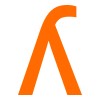Aphasia Rehabilitation: Modulating Cues, Feedback & Practice
Aphasia, Stroke

About this trial
This is an interventional treatment trial for Aphasia focused on measuring Aphasia, Speech Rehabilitation
Eligibility Criteria
Inclusion Criteria:
- A single unilateral left-hemisphere stroke
- Aphasia Quotient between 40 and 80 on the Western Aphasia Battery
- Age 21 or older
- At least 6 months post-stroke
- Able to comply with the study protocol
- Premorbidly right-handed, as determined by the Edinburgh Handedness Inventory
- Fluent in English premorbidly
- Completed at least 8th grade education
Exclusion Criteria:
- More than one stroke
- Any other neurological condition that could potentially affect cognition, speech or language.
- Global aphasia or inability to participate in routine speech therapy
- Major active psychiatric illness that may interfere with required study procedures
- Untreated or inadequately treated depression
- Current abuse of alcohol or drugs
- Unable to understand, cooperate or comply with study procedures
- Significant visual or auditory impairment
Sites / Locations
- Center for Aphasia Research & Treatment, Rehabilitation Institute of Chicago
Arms of the Study
Arm 1
Arm 2
Arm 3
Arm 4
Active Comparator
Active Comparator
Active Comparator
Active Comparator
High complexity, high feedback
High complexity, low feedback
Low complexity, high feedback
Low complexity, low feedback
Scripts are one grade level higher than the typical script that would be provided for the severity of aphasia; there is an opportunity for the participant to listen to his/her production and assess performance.
Scripts are one grade level higher than the typical script that would be provided for the severity of aphasia; there is no opportunity for the participant to listen to his/her production and assess performance.
Scripts are one grade level lower than the typical script that would be provided for the severity of aphasia; there is an opportunity for the participant to listen to his/her production and assess performance.
Scripts are one grade level lower than the typical script that would be provided for the severity of aphasia; there is no opportunity for the participant to listen to his/her production and assess performance.
Outcomes
Primary Outcome Measures
Secondary Outcome Measures
Full Information
1. Study Identification
2. Study Status
3. Sponsor/Collaborators
4. Oversight
5. Study Description
6. Conditions and Keywords
7. Study Design
8. Arms, Groups, and Interventions
10. Eligibility
12. IPD Sharing Statement
Learn more about this trial
